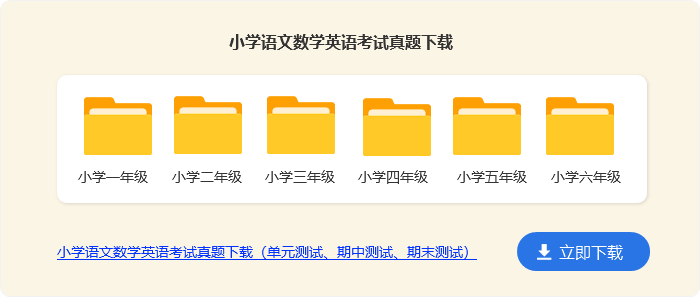
- 相关推荐
小学英语四年级重点知识点汇总
在小学英语学习期间,四年级的时候是提高英语成绩最佳时期,因此小学生们要抓住时机,巩固好所学内容,逐步提高英语成绩。下面是百分网小编为大家整理的小学英语四年级知识点汇总,希望对大家有用!

小学英语四年级重点知识点 1
1、国家与城市名称类
China 中国
Canada 加拿大
The U.S. 美国
Britain 英国
Australia 澳大利亚
India 印度
France 法国
Ottawa 渥太华
London 伦敦
Washington D.C. 华盛顿
from 来自
famous 著名的
2、家务劳动类
housework 家务劳动
clean 弄干净,擦干净
wash 洗,冲洗
water 水,给……浇水
shoe 鞋
window 窗户
clothes 衣服
flower 花
dish 盘子
meal 一餐,一饭
yum 美味的
3、饮食类
food 食物
eat 吃
drink 喝
noodle 面条
potato 土豆
tomato 西红柿
soup 汤
pizza 比萨饼
cake 蛋糕
fruit 水果
pear 梨子
banana 香蕉
orange 橘子,橙子
apple 苹果
4、周末日常活动类
weekend 周末
visit 参观,拜访
help 帮助
listen 听
museum 博物馆
picnic 野餐
violin 小提琴
piano 钢琴
erhu 二胡
drum 鼓
cinema 电影院
grandparent 祖父(母),外祖父(母)
sometimes 有时
often 经常
usually 通常地
great 非常好的
very 非常
英语四年级句子
1.教室里的物品:( in the classroom)
board 黑板 light 灯 window窗户 floor地板 wall墙 desk课桌 chair椅子 teacher’s desk讲台 fan 风扇 computer计算机
2. 书的种类:( in the bag)
story-book故事书 picture book图画书 math book 数学书
chinese book 语文书 english book 英语书 notebook 故事书
3. 房间物品: (in the room)
table餐桌 fridge 冰箱 shelf 书架 bed床 sofa 沙发
phone 电话 light 灯 lamp 台灯 tv电视
4. 餐具:
plate 盘子 spoon 勺子 fork 叉子 knife 刀 chopsticks 筷子
5. 房间名称:
study 书房 bathroom 浴室 bedroom 卧室 living room 客厅 kitchen 厨房
6. 业余爱好:
painting 绘画 music 音乐 sports 运动 science 科学 computer game 电脑游戏
7. 职业:
driver司机 farmer 农民 doctor 医生 nurse 护士 baseball player 棒球运动员
8. 家庭成员:
grandfather( grandpa) 爷爷,外公 grandmother 奶奶,外婆 father 父亲
mother母亲 uncle 叔叔,舅舅 aunt 阿姨,舅妈 brother 兄弟 sister姐妹
9. 形容人外貌的词语:
tall 高的 short 矮的 strong 健壮的 thin 瘦的 quiet 安静的
long hair 长头发 short hair 短头发 big eyes 大眼睛 small mouth 小嘴巴
10. 数字:
one two three four five six seven eight nine ten eleven
twelve thirteen fourteen fifteen sixteen seventeen eighteen nineteen twenty thirty forty fifty
11. 食物名称:
吃的:
egg鸡蛋 bread面包 cake 蛋糕 rice 米饭 beef 牛肉
fish 鱼 chicken 鸡肉 soup 汤 vegetable 蔬菜
hamburger 汉堡 hot dog 热狗 french fries 薯条
饮料(drinks):
milk 牛奶 water 水 coke可乐 coffee 咖啡 tea 茶
水果(fruits):
watermelon 西瓜 apple 苹果 banana 香蕉 pear 梨 strawberry 草莓
orange 橙子,橘子 peach 桃子
12. 文具用品:
pen钢笔 pencil 铅笔 pencil-case 铅笔盒 ruler尺子 eraser 橡皮
crayon 蜡笔 sharpener 卷笔刀 bag 包 schoolbag 书包
13. 方位词:
on 在…上面 in 在…里面 under 在…下面 near 在…旁边
英语四年级句式
1. Let sb. d sth. 让某人做某事
例如:Let e help u.
Let us g! ( let us= let’s )
2. clean v. 打扫,清洁
例如:clean the windw 擦洗窗户
clean the classr 打扫教室
clean the bard(= blacbard) 擦黑板
clean the des 擦桌子
ad. 干净的,清洁的 (→dirt ad. 脏的,脏乱的)
例如: Our classr is ver clean.
3. Where is/ are sth. ? 某物在哪里?
例如:Where is b?
Where is his pen?
Where are her friends?
Where are their chairs?
4. pen the dr
sweep the flr clean the bard
5. 表示拥有 have 和there be句型的用法
通常,表示某人拥有某物时,用have
我有一只小猫。
他有一台电脑。
他们有一些书。
表示某处有某物,客观地陈述某物位于某地,可以用There be句型(be 在这里有is 和are两种形式)
教室里有一块黑板。
教室里有六盏灯。
大街上有许多人。
6. have a l 看一看
l at sth. 看(强调“看”的动作)
see(强调看到的具体内容)
例如:Ma I have a l?
L at that car!
Please l at the teacher.
I see a cute dg.
7. 表示位置时介词in n at的用法
in 在里,在(较大的地方)
在土里
在房子里
在中国
在西安
On 在上
在桌子上
在操场上
At 在(较小的地方)
在家
8.this that these thse的用法
this ad. (后可接单数名词) This dg is cute.
n. This is des.
that ad. (后可接单数名词) That wan is ther.
n. That is cup.
these ad. (后可接复数名词) These bs are ver interesting.
n. These are ur bs.
Thse ad. (后可接复数名词) Thse trees are green.
n. Thse pictures are nice!
四年级英语短语
1、You set me up!
你出卖我!
2、Slow down!
慢点!
3、He won an election.
他在选举中获胜。
4、Dont let me down.
别让我失望。
5、Dont fall for it!
别上当!
6、Keep in Touch.
保持联络。
7、IS it true or false?
这是对的还是错的?
8、Its against the law.
这是违法的。
9、Make up your mind.
做个决定吧。
10、Count me on.
算上我。
11、Follow me.
跟我来。
12、He is just a child.
他只是个孩子。
13、Well,it depends.
噢,这得看情况。
14、Your hand feels cold.
你的手摸起来很冷。
15、There comes a bus.
汽车来了。
16、Feel better?
好点了吗?
17、You owe me one.
你欠我一个人情。
18、Its up to you.
由你决定。
19、I love you!
我爱你!
20、He looks very healthy.
他看来很健康。
21、Clothes make the man.
人要衣装。
22、If only I could fly.
要是我能飞就好了。
23、I beg your pardon?
请您再说一遍(我没有听清)。
24、Be quiet!
安静点!
25、What about you?
你呢?
26、You are just in time.
你来得正是时候。
27、No one knows .
没有人知道。
28、Time is money.
时间就是金钱。
29、Of course!
当然了!
30、Dont lose your head.
不要惊慌失措。
31、What time is it?
几点了?
32、Time is running out.
没时间了。
33、Whos calling?
是哪一位?
34、Dont be so childish.
别这么孩子气。
35、I decline!
我拒绝!
36、It is growing cool.
天气渐渐凉爽起来。
137、Im full.
我饱了。
138、No way!
不行!
39、Hold on.
等一等。
40、Thats neat.
这很好。
41、Allow me.
让我来。
42、Watch out!
当心。
43、Good job!
做得好!
44、Not yet.
还没。
45、He came by train.
他乘火车来。
46、Never mind.
不要紧。
47、The wall has ears.
隔墙有耳。
48、Try again.
再试试。
49、So far, so good.
目前还不错。
50、Just read it for me.
就读给我听好了。
51、See you.
再见。
52、Let go!
放手!
53、He has a large income.
他有很高的收入。
54、Hows it going?
怎么样?
55、Im his fan.
我是他的影迷。
56、I cant follow you.
我不懂你说的。
57、Im single.
我是单身贵族。
58、This way.
这边请。
59、Have fun!
玩得开心!
60、Can I help you?
我能帮你吗?
61、Ill see to it.
我会留意的。
62、I quit!
我不干了!
63、It’s Sunday today.
今天是星期天。
64、You cant miss it.
你一定能找到的。
65、What a pity!
太遗憾了!
66、Im home.
我回来了。
67、Im On your side.
我全力支持你。
68、Take care!
保重!
69、Forget it!
休想! (算了!)
70、He always talks big.
他总是吹牛。
71、Were all for it.
我们全都同意。
72、Fasten your seat belt.
系好你的安全带。
73、T cant help it.
我情不自禁。
74、Ill see you at six.
我六点钟见你。
75、He is a smart boy.
他是个小机灵鬼。
76、What happened to you?
你怎么了?
77、My mouth is watering.
我要流口水了。
78、Hows everything?
一切还好吧?
79、Let me see.
让我想想。
80、Just wonderful!
简直太棒了!
81、Who told you that?
谁告诉你的?
82、Im in a hurry!
我在赶时间!
83、May I use your pen?
我可以用你的笔吗?
84、I am a football fan.
我是个足球迷。
85、Not bad.
还不错。
86、Long time no see!
好久不见!
87、You can make it!
你能做到!
88、I promise.
我保证。
89、Enjoy yourself!
祝你玩得开心!
90、Any day will do.
哪一天都行。
91、Ill try my best.
我尽力而为。
92、Did you miss the bus?
你错过公共汽车了?
93、I doubt it.
我怀疑。
94、Cheer up!
振作起来!
95、You did fairly well!
你干得相当不错1
96、Yes,I suppose So.
是的,我也这么认为。
97、Thats all!
就这样!
98、The answer is zero.
白忙了。
99、What do you think?
你怎么认为?
100、It seems all right.
看来这没问题。
小学英语四年级重点知识点 2
一、基数词变序数词助记歌
基变序,有规律,末尾加上th;一、二、三特殊记,八加h ,九去e ,ve要用f替;以e结尾变ie,后跟th莫忘记。要想表示几十几,只变个位就可以。
特殊变化:one-first ,two-second ,three-third ,five-fifth ,nine-ninth ,twelve-twelfth ,forty-fortieth ,eight-nine-eighty-ninth
二、a number of ,the number of
a number of 意思是“许多”,相当于a lot of ; the number of意思是“……的数目,……的数量”,当它作主语时,谓语动词用单数形式。
A number of students like playing computer games.
许多学生喜欢玩电脑游戏。
The number of the students is about 1500 in our school.
我们学校学生的人数大约是1500。
三、概数(略数)表达法
数词+hundred/thousand/million/billion+名词复数
hundreds/thousands/millions/billions of+名词复数
四、不能同时出现在一个句子中的连词
1、because(因为),so(所以)不能同时出现在一个句子里,只能用其一。
Because he was tired, he couldn’t walk there.
=He was tired ,so he couldn’t walk there.
因为他累了,所以他不能走到那儿了。
2、(al)thouthg(虽然),but (但是)不能同时出现在一个句子里,只能用其一。但thouthg和yet可以同时出现在一个句子里(yet用作副词)
Thought he was tired, he still worked hard.
=He was tired, but he still worked hard.
虽然他很累,但他仍然努力工作。
五、of sb.与for sb.的区别
(1)of sb.“对于(某人)”,用于It is +adj. +of sb. to do sth.句型中,形容词为clever, kind, nice等描述人物性格特征的词,of后的人物与形容词有主表关系。
(2)for sb.“对于(某人)”,用于It is +adj. +for sb. to do sth.句型中, 形容词为easy, important等不描述人物性格特征的词,for后的人物与形容词没有主表关系。
六、形容词的比较级
1、形容词比较级在句子中的运用:两个事物或人的比较用比较级,比较级后面一般带有单词than。比较级前面可以用more, a little 来修饰表示程度。than后的人称代词用主格(口语中可用宾格)。
2、形容词加er的规则:
⑴一般在词尾加er ;
⑵以字母e 结尾,加r ;
⑶以一个元音字母和一个辅音字母结尾,应双写末尾的辅音字母,再加er ;
⑷以“辅音字母+y”结尾,先把y变i,再加er 。
3、不规则形容词比较级:
good-better, beautiful-more beautiful
七、副词的`比较级
1、形容词与副词的区别 (有be用形,有形用be;有动用副,有副用动)
⑴在句子中形容词一般处于名词之前或be动词之后
⑵副词在句子中最常见的是处于实义动词之后
2、副词比较级的变化规则基本与形容词比较级相同 (不规则变化:well-better, far-farther)
八、There be 句型与have, has的区别
1、There be 句型表示:在某地有某物(或人)
2、在there be 句型中,主语是单数,be 动词用is ; 主语是复数,be 动词用are ; 如有几件物品,be 动词根据最靠近be 动词的那个名词决定。
3、there be 句型的否定句在be 动词后加not , 一般疑问句把be 动词调到句首。
4、there be句型与have(has) 的区别:there be 表示在某地有某物(或人);have(has) 表示某人拥有某物。
5、some 和any 在there be 句型中的运用:some 用于肯定句, any 用于否定句或疑问句。
6、and 和or 在there be句型中的运用:and 用于肯定句, or 用于否定句或疑问句。
7、针对数量提问的特殊疑问句的基本结构是:
How many + 名词复数 + are there + 介词短语?
How much + 不可数名词 + is there + 介词短语?
8、针对主语提问的特殊疑问句的基本结构是:
What’s + 介词短语?
九、动词过去式变化规则
1、一般在动词末尾加-ed,如:pull-pulled, cook-cooked
2、结尾是e加d,如:taste-tasted
3、末尾只有一个元音字母和一个辅音字母的重读闭音节,应双写末尾的辅音字母,再加-ed,如:stop-stopped
4、以“辅音字母+y”结尾的,变y为i, 再加-ed,如:study-studie
十、一般过去时
1、一般过去时表示过去某个时间发生的动作或存在的状态,常和表示过去的时间状语连用。一般过去时也表示过去经常或反复发生的动作感谢。
2、Be动词在一般过去时中的变化:
⑴am 和is在一般过去时中变为was。(was not=wasn’t)
⑵are在一般过去时中变为were。(were not=weren’t)
⑶带有was或were的句子,其否定、疑问的变化和is, am, are一样,即否定句在was或were后加not,一般疑问句把was或were调到句首。
3、句中没有be动词的一般过去时的句子
否定句:didn’t +动词原形,如:Jim didn’t go home yesterday.
一般疑问句:在句首加did,句子中的动词过去式变回原形。
如:Did Jim go home yesterday?
特殊疑问句:⑴疑问词+did+主语+动词原形?
如: What did Jim do yesterday?
⑵疑问词当主语时:疑问词+动词过去式?
如:Who went to home yesterday?
【小学英语四年级重点知识点】相关文章:
小学英语重点知识点总结归纳11-07
小学数学重点知识点梳理07-03
初中英语重点知识点的总结02-24
初一英语重点知识点归纳01-22
高一英语考试的知识点及重点句型12-02
小学英语重点句型复习07-19
高中英语重点知识点归纳总结11-07
初一初二英语重点知识点归纳07-19
高一英语单词词组重点知识点04-19






